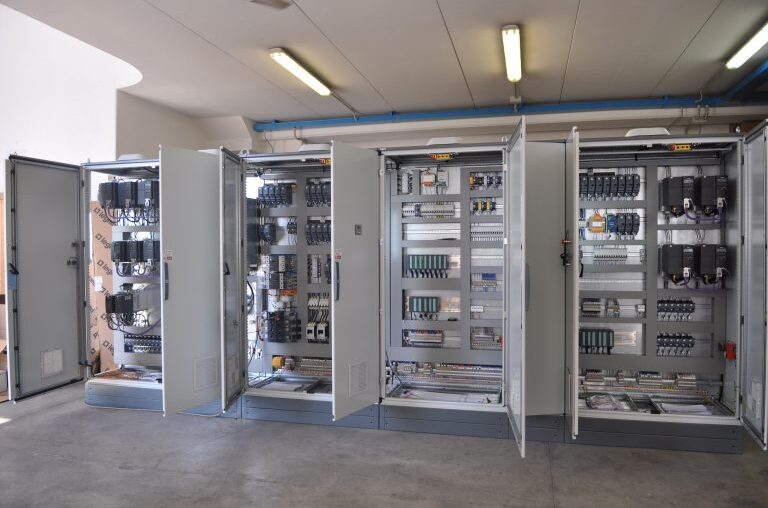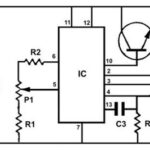Electrical panels, also known as breaker boxes, are the distribution points for power in your home. Over time, they may need to be upgraded or replaced to meet modern electrical demands, improve safety, and prevent potential hazards. Changing your electrical panel is a vital step toward maintaining an efficient and safe home.
What is an Electrical Panel?
An electrical panel is the central hub of a home’s electrical system, housing circuit breakers or fuses that control the flow of electricity to different parts of the house. It protects circuits from overloading by shutting off power during faults or surges, ensuring the safety of your electrical system.
Reasons to Change an Electrical Panel
Some of the reasons one would have to substitute his electrical panel include increased power demands, outdated technology, and age. Older electrical panels may not be able to support advanced appliances or equipment; sometimes, they could trip or overheat. This will ensure compatibility, curb the risks of fires, and comply with local electrical codes.
Benefits of Upgrading Your Electrical Panel
Upgrading your electrical panel will enhance safety, accommodate modern energy needs, and improve system reliability. It will allow for additional circuits, support high-powered appliances, and eliminate outdated fuses. A new panel also increases your home’s value, making it a smart investment for safety and efficiency.
Signs You Need a New Electrical Panel
Common symptoms that indicate you need to replace your panel are flickering lights, frequent tripping of breakers, a burnt smell coming from the panel, and melting wires. If your panel is older than 20–30 years or if you still use fuses, it is already time to consider replacing it for safety reasons.
The Process of Electrical Panel Changing
Replacing an electrical panel requires a licensed electrician to ensure safety and compliance with regulations. The process involves disconnecting the old panel, installing the new one, rewiring circuits, and conducting tests. Proper labeling and organization are crucial for future troubleshooting and maintenance.
Cost of Electrical Panel Replacement
The cost of replacing an electrical panel varies based on factors like panel size, location, and complexity. On average, homeowners spend $1,500–$3,000 for a standard upgrade. While this may seem like a significant expense, the benefits of improved safety and efficiency outweigh the initial cost.
Choosing the Right Electrical Panel
Selecting the right panel depends on your home’s energy requirements and future needs. Panels are available in various sizes, typically ranging from 100 to 400 amps. Consult with an electrician to determine the ideal capacity for your household, ensuring you have room for expansion.
Safety Precautions During Replacement
Electrical panel replacement is a dangerous task and should only be performed by a licensed electrician. They ensure proper grounding, secure wiring connections, and adherence to safety codes. Avoid DIY attempts to prevent serious injuries or damage to your electrical system.
Importance of Professional Installation
A qualified electrician ensures the job is done right and safely. Professionals ensure that the new panel is up to local codes, properly wired, and will integrate well with your existing system. Their expertise minimizes downtime and prevents costly mistakes during the installation process.
Maintenance of Your New Electrical Panel
Once your new panel is installed regular maintenance is essential to keep it functioning efficiently. Schedule annual inspections to identify and fix minor issues, ensuring optimal performance and extending the life of your panel. Keep the panel area free from clutter to reduce fire hazards.
FAQs
Q: How often should I replace my electrical panel?
A: Electrical panels typically last 20–30 years but may require replacement sooner due to increased energy needs or damage.
Q: Can I replace my electrical panel myself?
A: No, replacing an electrical panel is a complex and hazardous task that should only be handled by a licensed electrician.
Q: What size electrical panel do I need for my home?
A: The size depends on your household’s power consumption; consult an electrician to determine the best capacity.
Conclusion
Electrical panel changeover is a mandatory step toward enhancing the safety features of your house and to achieve the demands of present energy consumption. An upgraded panel will enhance its efficiency, dependability, and safety. An upgraded panel installed by a licensed technician and well maintained will safeguard your home and your family from potential electrical dangers. A new electrical panel also protects your house while giving you peace of mind; hence, it also improves the value of your property with increased functionality.




